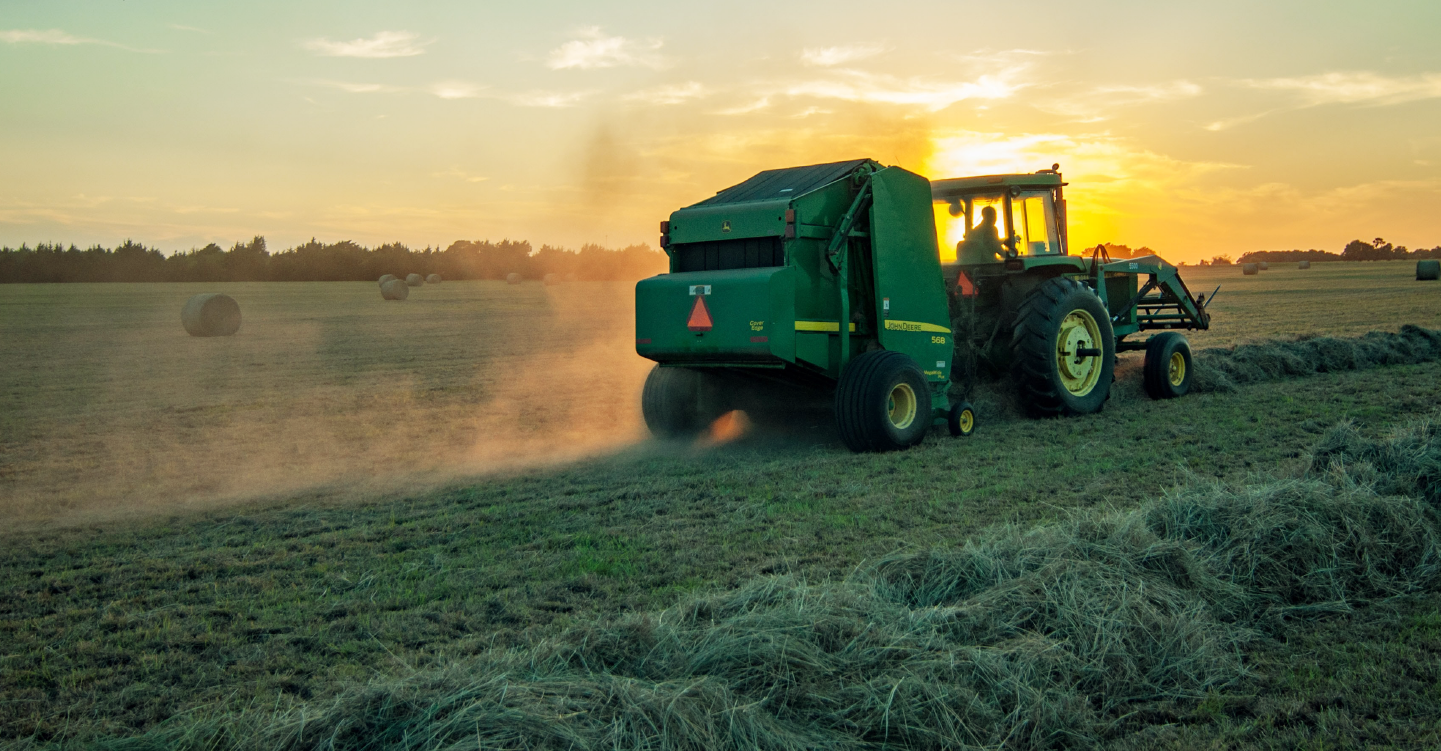CEFC backs biotech start-up to lift soil organic carbon and boost farm productivity

25 June 2020
The CEFC is investing $1.7 million in an Australian biotechnology company that aims to improve the drought resilience of farming land, increase productivity and remove carbon from the atmosphere.
In a new investment in Australia’s emerging agritech sector, the CEFC is increasing its focus on technologies that can deliver enhanced sustainable farming practices to help farmers boost productivity and energy efficiency.
The Soil Carbon Company (SCC) * is developing a microbial treatment for seeds with the potential to increase the level of organic carbon in their soil – enabling the soils to retain more water and improving the ability of crops to withstand extreme weather conditions.
The treatment could also reduce the amount of nitrogenous fertiliser used in agricultural production, further reducing emissions.
The CEFC investment, through the Clean Energy Innovation Fund, is part of an SCC capital raising of $10 million. Other investors include prominent Hong Kong investment group Horizons Ventures, a VC fund backed by Li Ka-shing with early investments in companies like Spotify and Zoom, Grok Ventures, the private investment fund of Mike and Annie Cannon-Brookes and Artesian.
CEFC CEO Ian Learmonth said the SCC technology had the potential to offer Australian farmers another weapon in their battle against drought and extreme weather conditions, while contributing to lower greenhouse gas emissions.
“Australian farmers are keen early adopters of technology and look to science to improve the productivity of their land. By increasing the amount of water that can be stored in soil, the SCC technology could significantly bolster crop health and drought resilience,” Mr Learmonth said.
“Healthier farms are also more valuable farms – by reducing fertiliser use, this technology could also help improve soil health and increase farm value.”
Retaining organic carbon in soil is vital for extensive agricultural systems. Analysis of the impact of cultivation by the Intergovernmental Panel on Climate Change suggests that cropland soil has lost up to 60 per cent of its organic carbon compared to pre-agricultural periods[1].
A 2020 study found that replenishing and protecting the world’s soil carbon stores could help offset up to 5.5 billion tonnes of greenhouse gases every year.[2]
The study estimated that at least 40 per cent of this would come from protecting existing soil carbon stores in the world’s forests, peatlands and wetlands. But significant carbon abatement could also be achieved by supporting farmers to adopt new agricultural practices to enhance soil carbon on their land, leading to improved water regulation, water quality, stabilising production and resilience.
SCC co-founder and CEO Guy Hudson said: “Even small increases in organic carbon levels in soil can reduce atmospheric carbon dioxide and increase agricultural productivity.
“Carbon is difficult to store in soils in the long-term, it naturally reacts with oxygen or water and is released back into the atmosphere. Our technology aims to overcome this by storing the carbon in more stable forms.”
Mr Hudson said SCC was also confident that the technology could offer another revenue stream for farmers through carbon trading.
"Carbon offset trading has the potential to become one of the largest and most important markets in the world. We want to make sure farmers have the tools to add to this market and the platform to benefit from it,” he said.
"To rapidly develop these markets, we need to bring together a cross-industry community with the goal of accelerating our transition to a low carbon economy. That’s why we are so excited to be working with the CEFC."
The SCC investment is the CEFC’s first commitment to a bio-sequestration opportunity, opening another pathway toward a lower emissions economy.
“Together with energy efficiency, low carbon electricity, and electrification and fuel switching, bio-sequestration offers great potential for decarbonisation,” Mr Learmonth said.
“Agricultural farmland accounts for billions of hectares of land around the world[3], which means there is a large potential market for the SCC technology. We are excited to be able to support this innovative Australian agritech company in the further development of its technology.”
About Soil Carbon Co.
Soil Carbon Co. is building the tools and platforms to help farming businesses thrive. The unique approach leverages the potential of specific soil microbes to deliver stable carbon sequestration at scale in all agricultural systems. More carbon in our soils not only gives agronomic benefits but creates an opportunity for farmers to trade a new commodity: sequestered carbon.
*Loam Bio was formerly Soil Carbon Co. In October 2021, the CEFC extended its commitment to Loam Bio to $5.8 million.
[1] IPCC, 2019: Climate Change and Land: an IPCC special report on climate change, desertification, land degradation, sustainable land management, food security, and greenhouse gas fluxes in terrestrial ecosystems [P.R. Shukla, J. Skea, E. Calvo Buendia, V. Masson-Delmotte, H.-O. Pörtner, D. C. Roberts, P. Zhai, R. Slade, S. Connors, R. van Diemen, M. Ferrat, E. Haughey, S. Luz, S. Neogi, M. Pathak, J. Petzold, J. Portugal Pereira, P. Vyas, E. Huntley, K. Kissick, M. Belkacemi, J. Malley, (eds.)].
[2] Bossio, D.A., Cook-Patton, S.C., Ellis, P.W. et al. The role of soil carbon in natural climate solutions. Nat Sustain (2020).
[3] Food and Agriculture Organisation of the United Nations, Land Use, Irrigation and Agricultural Practices, June 2019
Media release, 2020




